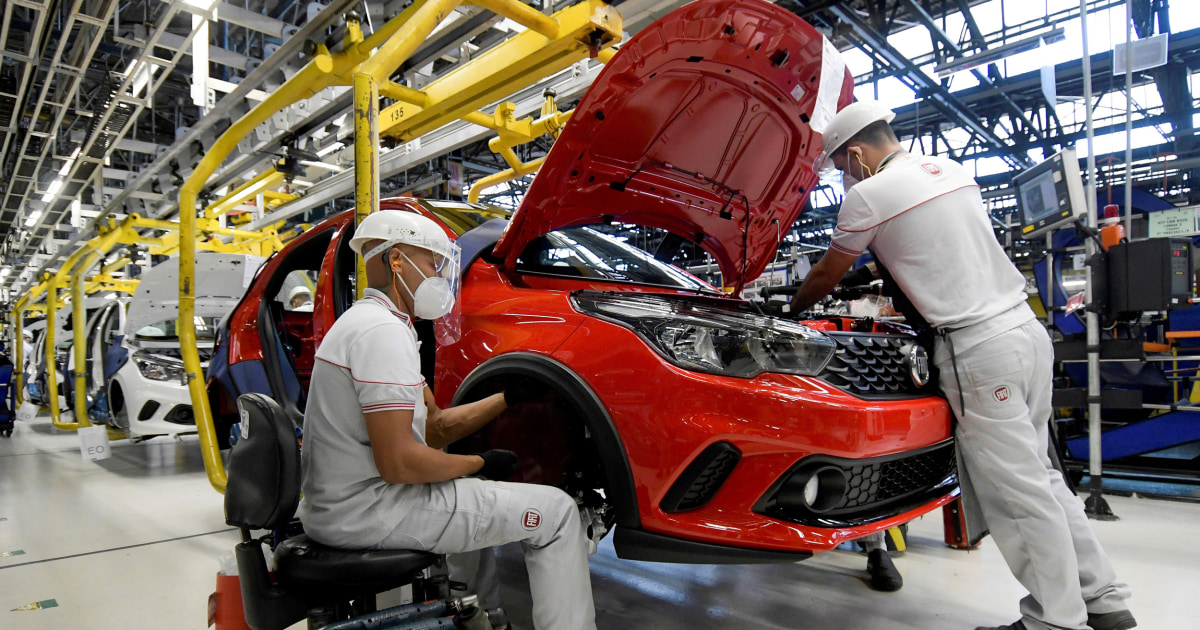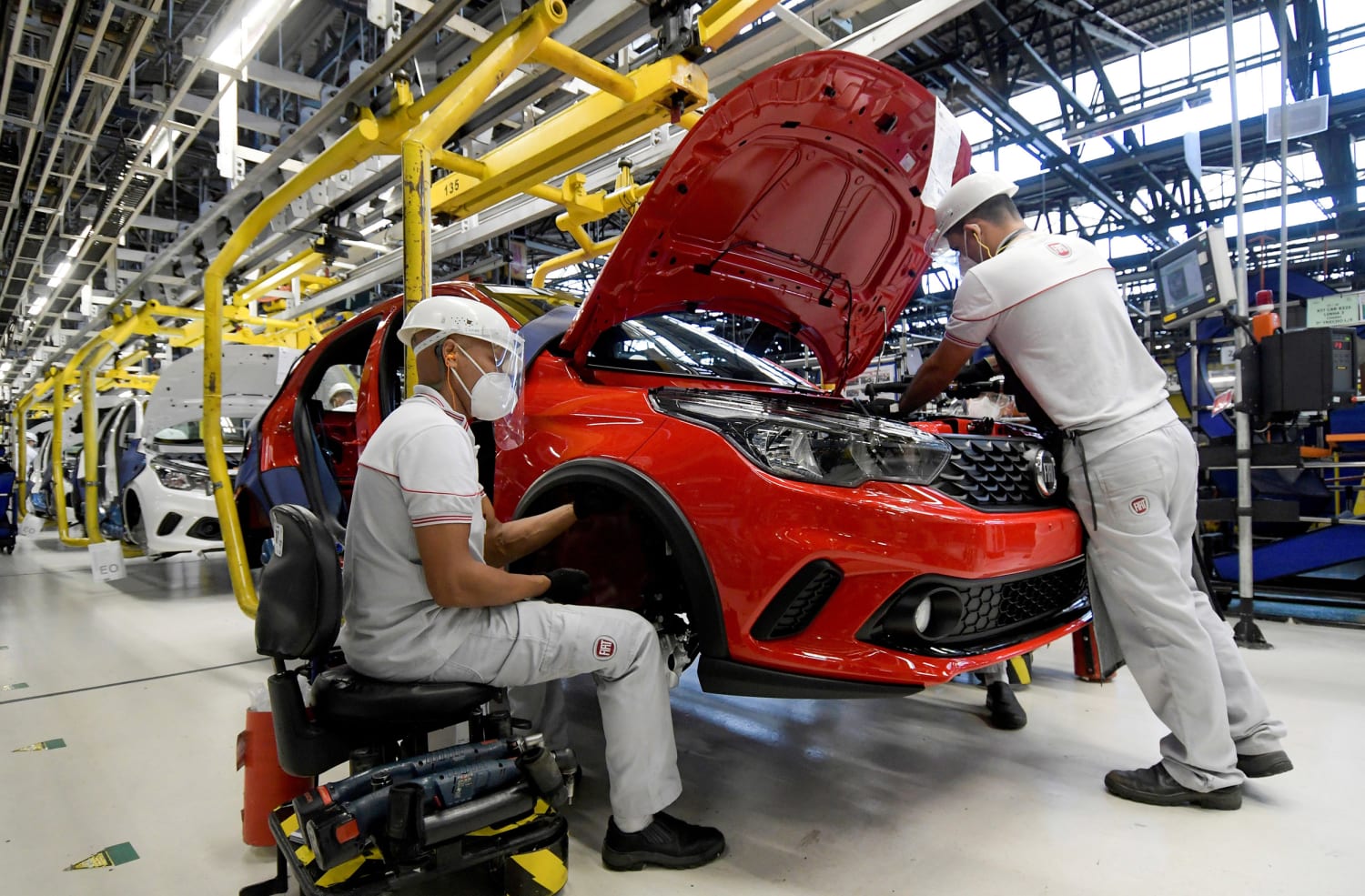
Shareholders in Peugeot’s parent company PSA on Monday approved a merger with Fiat Chrysler Automobiles, creating the world’s fourth-largest automaker, Stellantis.
The deal will wrap up FCA’s decade-long search for a partner, after the automaker was previously rejected by rivals including General Motors and Volkswagen. Officials have suggested the merger will yield billions of dollars in annual savings while helping Stellantis accelerate development of the electric and autonomous vehicles expected to transform the auto industry over the coming decade.
But there will remain plenty of challenges, starting with the coronavirus pandemic that led to a double-digit decline in global car sales last year. As Stellantis, meanwhile, there could be significant pressure to dump some of the new company’s weaker brands, including FCA’s namesake Fiat and Chrysler.
“Stellantis will be a sort of conglomerate of brands, some great and some not so good and most very regional,” said Jefferies analyst Philippe Houchois. The list also includes Jeep, Ram, Dodge, Maserati and Alfa-Romeo on the Fiat Chrysler side, as well as Peugeot, Citroën, DS, Opel and Vauxhall. “The merger,” added Houchois, “will be a good opportunity for a reset.”
PSA has been looking for ways to re-enter the U.S. market after a three-decade absence. But it is strong in China, where Fiat Chrysler has only a modest presence.
The decade-long search was initiated by FCA’s former CEO, the late Sergio Marchionne, even before Italy’s Fiat completed its own merger with Chrysler. The Detroit-based carmaker was facing bankruptcy when then-President Barack Obama approved a federal bailout only after Fiat agreed to become Chrysler’s white knight.
Marchionne’s efforts to find another partner were repeatedly rejected. It was only after the CEO’s unexpected July 2018 death that his successor, Mike Manley, finally lined up a potential marriage partner. But that deal with France’s Renault fell apart at the 11th hour.
Unexpectedly, Manley announced yet another deal months later, this one with Renault’s arch-rival, Peugeot. Ties between Chrysler and Peugeot stretched back for decades and industry analysts saw plenty of synergies in the deal. For one thing, the two automakers each have gaps in their line-up the other can fill. The same is true from a geographic perspective. PSA, for example, has been looking for ways to re-enter the U.S. market after a three-decade absence. But it is strong in China, where Fiat Chrysler has only a modest presence.
The partners set some tough goals going into the final phase of their negotiations. Early on, officials estimated they could squeeze out savings of 3.7 billion euros, or $4.5 billion, through various efficiencies. They later upped that to just over $6 billion.
But the pandemic has made the business of forecasting, whether unit sales, revenues, or earnings, exceedingly difficult. And the expectation of analysts is that it will take to nearly mid-decade before global sales come close to pre-pandemic levels. That could make it difficult to meet those goals.
Stellantis will face plenty of other challenges. FCA and PSA each lagged behind in the development of technologies expected to revolutionize the industry over the coming decade. The new automaker will be under pressure to ramp up spending on both autonomous and electrified vehicles over the coming years. On the battery-car side, Stellantis will have to catch up with key competitors taking the lead in the race to bring electric vehicles to market.
Under the agreement, FCA’s Chairman John Elkann — heir to Fiat’s founding family — will retain his title at Stellantis. So will Carlos Tavares, the highly regarded CEO who has been credited with turning around the French company since joining it six years ago. Significantly, PSA was able to put the Opel/Vauxhall unit into the black within a year after acquiring the German-based operation from General Motors. Under GM, Opel had been in the red for nearly two decades.
Until last month it was unclear what would happen to FCA’s CEO Manley. He will now serve as head of Stellantis operations in the Americas. Among his challenges will be the multi-phase revival of the Peugeot brand in the U.S. and Canada.
Manley, like his mentor Marchionne, is a big believer in scale. FCA was the world’s eighth-largest automaker in 2019, PSA the ninth. Combining their fortunes together would bump them up to number four by vehicle sales — ahead of long-dominant General Motors but behind Volkswagen, Toyota and the Renault-Nissan-Mitsubishi Alliance.
But with the industry hammered by the coronavirus pandemic, never mind facing a wave of new competitors such as Tesla, it’s far from certain that size alone matters the way it used to.
“The auto industry has been chasing size and consolidation for years, but it’s been slower in coming than many would like to see,” Jefferies analyst Philippe Houchois wrote in an investor note. “The question is whether GM, Toyota and Renault-Nissan have provided evidence that there may be limits to this strategy.”
Source: | This article originally belongs to Nbcnews.com










